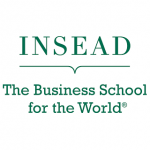The roles we unconsciously adopt in significant relationships can result in struggles with colleagues, personal relationships or our careers.
Read the article at INSEAD Knowledge.

The roles we unconsciously adopt in significant relationships can result in struggles with colleagues, personal relationships or our careers.
Read the article at INSEAD Knowledge.

The crucial components to decision-making dilemmas may exist outside of your conscious awareness.
Read the article at INSEAD Knowledge.

Avoidance is an extremely common response to strategic initiatives that makes executives put off critical issues. To overcome it, look out for some crucial signs.
Read the article at INSEAD Knowledge.
Click here or on the image to download the pre-publication article, or here to access the final version (restricted access).
Article on IEEE Intelligent Systems, issue No.02 – Mar-Apr (2014 vol.29), pp: 36-43
By Yinping Yang, Horacio Falcao, Nuno Delicado, Andrew Ortony
Abstract: Face-to-face negotiations always benefit if the interacting individuals trust each other. But trust is also important in online interactions, even for humans interacting with a computational agent. In this paper we describe a behavioral experiment to determine whether, by volunteering information that it need not disclose, a software agent in a multi-issue negotiation can alleviate mistrust in human counterparts who differ in their propensities to mistrust others. Results indicated that when cynical, mistrusting humans negotiated with an agent that proactively communicated its issue priority and invited reciprocation, there were significantly more agreements and better utilities than when the agent did not volunteer such information. Furthermore, when the agent volunteered its issue priority, the outcomes for mistrusting individuals were as good as those for trusting individuals, for whom the volunteering of issue priority conferred no advantage. These findings provide insights for designing more effective, socially intelligent, agents in online negotiation settings.
Click here or on the image to download the article, or here for the whole magazine:
Article on EXIT magazine #28 (Jan-Dec 2012), published by Dianova
As the field of social entrepreneurship and innovation matures, it is becoming increasingly complex. New types of investors and investment structures emerge all the time, leading to growing stakeholder diversity, as well as more intricate alliances and partnerships for the social good. Negotiation and influencing competence is more critical than ever – not only to reach initial agreement on partnerships and investment relationships, but also, and in particular, to ensure that initiatives are successfully implemented for effective impact and satisfaction of all parties, especially beneficiaries.

Click here or on the image to download the paper:
INSEAD Working Paper, by Yinping Yang, Horacio Falcao, Nuno Delicado, Andrew Ortony
Presented at the Group Decision and Negotiation conference, GDN2012, in Recife, Brazil, 20-24 May 2012
Abstract: This study explores the consequences of a software agent volunteering one of its issue priorities and inviting its human counterpart to reciprocate in order to obtain preference tradeoffs in a multi-issue e-commerce negotiation scenario. Results indicated that while the agent followed the same negotiation strategy algorithm, agent-human dyads achieved better agreement rate and joint outcomes, and the human negotiators experienced more positive post-negotiation affect when the agent volunteered to communicate an issue priority than when it didn’t. The findings have implications for automated negotiation research and practice.
To get a good outcome, start by being prepared.
FEW employees are really ever quite satisfied with their pay packet. Perhaps for a brief spell of contentment after a decent pay rise, Oliver-like inclinations to say: ‘Please sir, may I have some more?’ may subside a little.
Perfect negotiators explore all the facets of a negotiation. They negotiate value, but also process and relationship.
Can you walk away from the negotiating table with a contract in your pocket and your ethics intact?